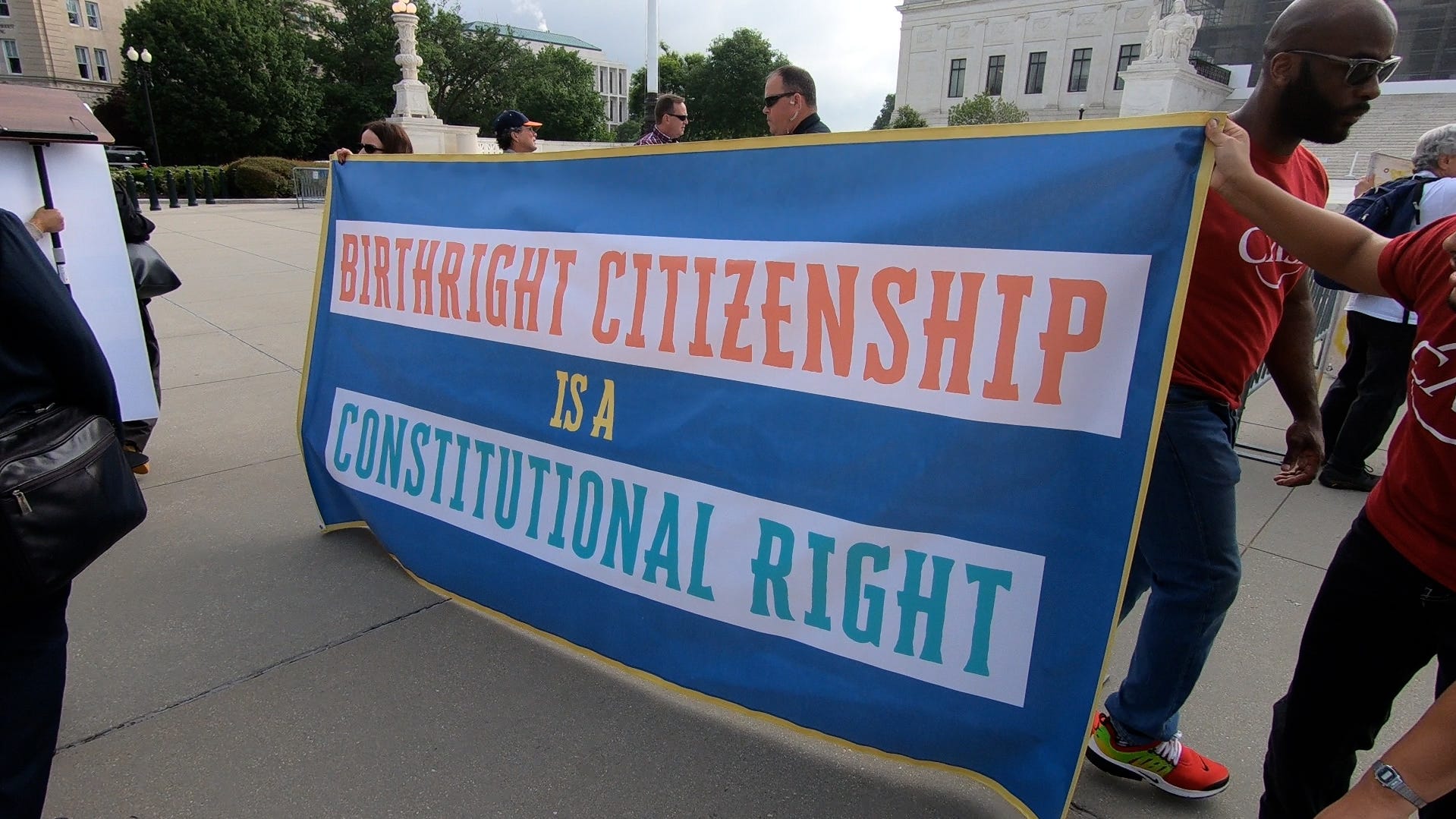Countries in the Americas grant birthright citizenship. What happens if they revoke it?

A presidential executive order restricting automatic citizenship for children born to some immigrants could reverse a right granted to everyone born in the United States for the past 157 years – a right granted by all but two countries in the Americas.
On May 15, the Supreme Court heard arguments over whether to let President Donald Trump's Jan. 20 order to take effect nationwide as legal challenges wind their way through the courts.
The right to automatic U.S. citizenship at birth was enshrined by the 14th Amendment, ratified in 1868 in the wake of the Civil War. It granted full citizenship to formerly enslaved people and their children, and ensured everyone born in the United States could claim citizenship regardless of race; legal rulings eventually cemented the right for the U.S.-born children of immigrants, too.
"The aim of the Amendment was to eliminate the existence of a class of people who were subjected to American law, but excluded from American legal rights," according to a report by the American Immigration Council, which advocates for immigrant rights.
Around the world: birthright citizenship by region
Some European, Asian and African countries restrict citizenship on the basis of ancestry, parentage or residency. Many still do today including Spain, France, Italy and Germany; India, Iran and Pakistan; South Africa, Sudan, Egypt and others. Citizenship to a baby born in those countries can depend on questions like whether their parents are citizens, for example.
Countries in the Americas – built by colonization and immigration – eventually followed the example of the United States, providing birthright citizenship to all.
Today, 33 nations in the Western Hemisphere – all except Colombia and the Dominican Republic – provide birthright citizenship to anyone born within their borders, according to World Population Review map of birthright citizenship around the globe.
Amid a rise of anti-immigrant sentiment, Trump has questioned automatic citizenship for the children of immigrants here illegally, or for those born to foreign nationals in the U.S. legally on a visa. The president's executive order would require at least one parent to possess U.S. citizenship or legal permanent residency in order for their U.S.-born child to gain citizenship.
The Center for Immigration Studies, which advocates for immigration restrictions, estimated there were between 225,000 to 250,000 births to immigrants in the country without authorization in 2023, or roughly 7% of births that year.
A case study in ending birthright citizenship
Bucking the majority in the Americas, the Dominican Republic decided in 2013 to restrict birthright citizenship in a way that disenfranchised children born to Haitian migrant workers.
Haiti and the Dominican Republic share the island of Hispaniola, and Haitians have long migrated across the border to work in the Dominican Republic's more prosperous economy.
The border region had long been fraught with racial and ethnic tensions, that in the past turned deadly. But the revocation of birthright citizenship from the children of Haitian immigrants – retroactive to 1929 – left hundreds of thousands of people stateless overnight, according to the Center for Migration Studies in New York, which advocates for immigrant rights.
The Dominican Republic deported hundreds of thousands of people who had been born there and saw their citizenship disappear.
More than a decade later, tens of thousands of people born in the Dominican Republic to Haitian parents have no way to enroll in school, work legally, marry or get a birth certificate for their children.
The same could happen to children born in the U.S. to parents who aren't citizens or lack legal status, should Trump's executive order take effect. However, Trump's order is not written to be retroactive.
Justices weigh consequences of birthright citizenship restrictions
The Supreme Court justices wrestled with whether to let Trump broadly enforce his restrictions on birthright citizenship as lower courts consider whether those changes are constitutional. During the May 15 hearing, justices asked attorneys for both sides about the consequences of allowing the order to take effect.
The Trump administration argues the executive order should only be paused for the people challenging it and should not be subject to a nationwide injunction putting it on hold.
Justice Elena Kagan said whether some states could become magnets for pregnant migrants to give birth, should the high court let the order take effect for some, would create a patchwork of citizenship policies among states.
“It strikes me as completely obvious,” Kagan said, that migrants would seek to give birth in states where U.S. citizenship was afforded.
New Jersey solicitor general Jeremy Feigenbaum told justices that letting Trump's order go into effect would produce “unprecedented chaos."
“We genuinely don’t know how this could possibly work on the ground,” he said.
Bart Jansen and Maureen Groppe contributed.